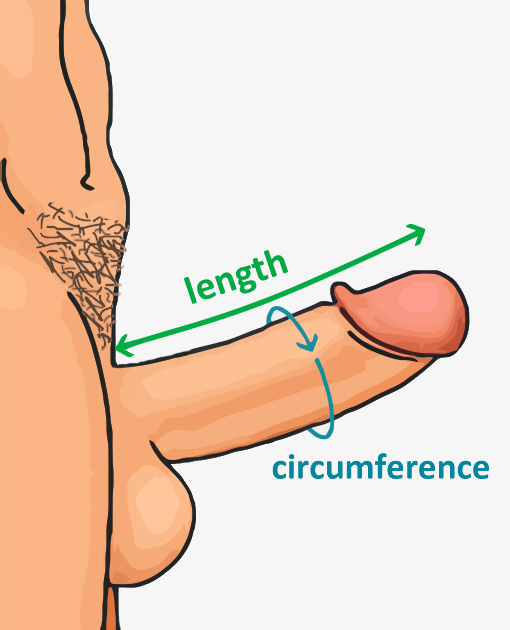13.9: Challenges with Erections AKA when Penises Misbehave
- Page ID
- 167969
Sometimes, people have trouble achieving and/or maintaining an erection. In the medical world, this is referred to as erectile dysfunction or ED for short. There can be many explanations for this. It is not always clear if the issue is psychological, physiological or both. In order to diagnose, a medical provider might ask if the problem has been lifelong or recently acquired. Does it happen all of the time or only with a partner? Does it happen with masturbation as well? Answering these questions can help a healthcare provider determine the reason. For example, if it doesn’t happen with masturbation but only with partners, then it is not physiological. It may be related to performance anxiety- when someone feels pressure to perform during sexual activity, and they get so nervous that they are unable to relax enough to let their natural body processes happen. Their brain instead gets fixated on managing the stress the person is experiencing. This can create a negative cycle. The more nervous someone is about performing and getting an erection, the less likely they are to achieve or maintain one.

A healthcare provider may also ask if the person has morning erections. If they have morning erections, even sometimes, that means the body can still achieve an erection on its own. There are some cases where a person is no longer capable of achieving an erection on their own. This could be because of removal of the prostate due to prostate cancer or other health issues. In this case, the medical options are penile pumps, implants or injections. These methods can be discussed with a urologist or primary care doctor.
If the person is able to achieve an erection, but not able to maintain it, then a medication such as Viagra or Cialis can be prescribed. These medications do not create erections, but they help maintain blood flow once an erection has been achieved.
If the issue is clearly psychological and more related to performance anxiety or other stressors, then looking at addressing the anxiety or stress is the key. For some people, working with a sexuality educator, counselor or therapist can help with this. There are a variety of exercises one can do to learn to relax during sexual activity and improve erections (see Metz and McCarthy book Coping with Erectile Dysfunction, for examples). If the person has a willing partner, they can involve their partner in the exercises as well. Sometimes, it is necessary to reassure a partner that the erection challenges are not their fault.
As a sexuality educator, I encourage people who are having erection challenges, to be kind and patient with their penises. Sometimes penises “misbehave” for good reasons. Rather than thinking of themselves as dysfunctional or as having a dysfunction, I encourage them to consider why their penis may not be cooperating with their plan for dependable erections. Sometimes, there are factors such as relationship issues, stress, exhaustion, or insecurity regarding sexual performance, or the influence of past negative experiences and other factors which could be at play.
It is also important to note that a soft penis can enjoy being touched and appreciated as much as an erect one. There is a myth that penises should show up erect for sexual activity, and remain erect for as long as the penis owner or partner(s) demand, in order for sexual activity to be worthy. This is not true. There is much pleasure that can be had by all involved parties, regardless of whether a penis is erect. So be kind to your soft penis and encourage your partner to do the same. Who knows, maybe then an erection will show up.
Of course, the one thing you can’t do so easily with a soft penis is penetrative vaginal or anal sex, particularly if you are using condoms, as putting a condom on a soft penis is not effective prevention as it can easily slip off. If you are not using condoms, then the “stuff it” method could be an option, simply stuffing the soft penis inside the anus or vagina. Sometimes once inside, the penis may become erect, but this method does not work for everyone. One could consider taking intercourse off the menu temporarily, as this relieves the pressure that the person feels to achieve an erection.
If the partner feels that receiving an object in their vagina or anus is an important part of their sexual pleasure, then fingers or toys such as dildos (see Chapter 4 on Pleasure for more info on sex toys) can be used to achieve that.
Most importantly, I recommend that we take the stigma and shame out of erection challenges. Many men in our culture are raised to think that having an erection for sexual activity is what makes them a man, and is what defines their masculinity. As a society, we can come up with new inclusive definitions of masculinity and femininity when it comes to sexuality and sexual expression that don’t shame anyone for their bodies shape, size, or ability.


